#Greek war of independence
Text
I said I would probably not post today however I am urgently popping up for this awesome fellow
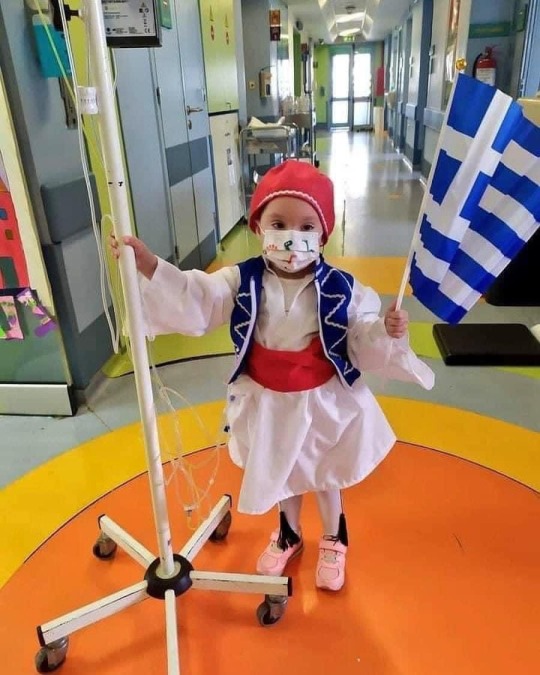
Happy Greek Independence Day 💙🤍🇬🇷🤍💙
Photo source
#greece#europe#Greek Independence Day#march 25#march 25th#Greek Revolution#Greek war of independence#Greeks#Greek people
105 notes
·
View notes
Text
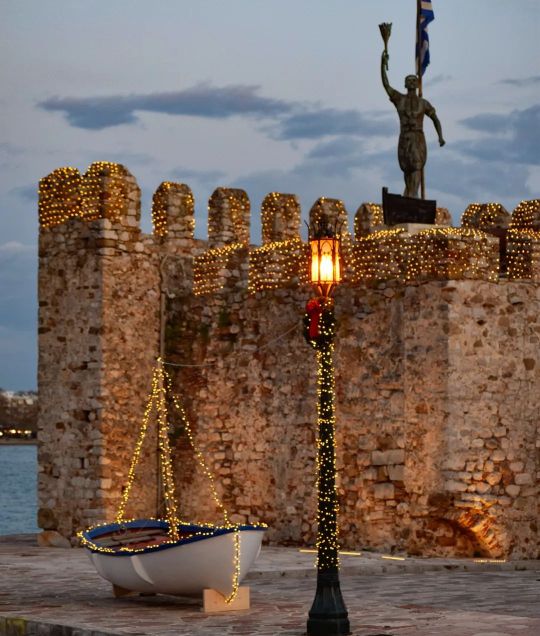
The western entrance to the port of Nafpaktos, Greece is dominated by the imposing statue of Georgios Paxinos or Anemoyiannis (1798-1821). He's depicted holding a torch he used to set the occupying Ottoman fleet inside the harbor ablaze. He was captured and killed but his memory and heroism lives on.
20 notes
·
View notes
Text

A small comic I made for our national celebration on 25th March.
The whole stitch is that Georgios Karaiskakis (the guy with the swear bubble) had a sailor 's mouth and couldn't make a sentence without adding a swear, whether necessary or not.
If I recall correctly, his last words were something along the line like this: "If I live, I'll fuck them! If not, they'll fart on my dick!"
Here, him and Theodoros Kolokotronis are trying to extract information from a captured Ottoman.

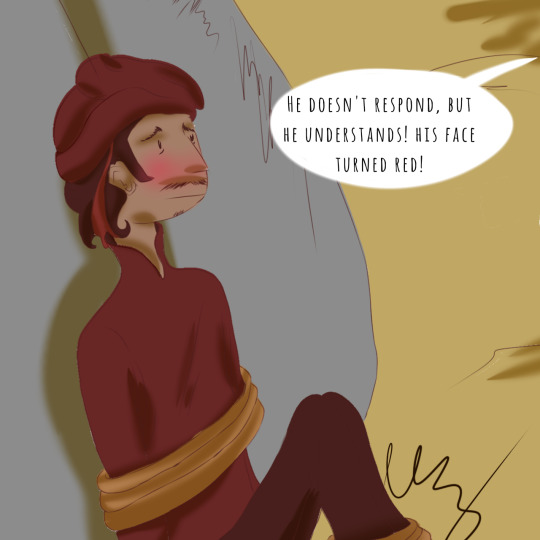

Taken from this strip from "Lucky Luke".

#25th march#greek war of independence#theodoros kolokotronis#georgios karaiskakis#greece#greek tumblr#ottoman man#artists on tumblr#lucky luke
6 notes
·
View notes
Text
"The 1821 revolution saw the creation of the Greek national state and the emergence of a strong Greek sense of national identity. Professor Vrasidas Karalis explores the political and historical significance of the revolution of 1821 and its relevance to our contemporary times.
Professor Vrasidas Karalis
23 March 2009 12:00am
When the Greek Revolution broke out in the early months of 1821, it brought with it the revival of an idea that seemed to have gone astray after the French Revolution.
The Revolutionaries themselves stated in their declaration of independence that they were fighting for liberty, equal rights and human emancipation.
“We are fighting against tyranny, despotism, and the darkness of slavery,” they declared.
A few months later, in their first constitution, the French [my note: obviously the author means the Greek] ]revolutionaries abolished social distinctions and redistributed wealth, gave equal rights to poor and rich alike, established a functional system of distinct authorities and declared that reason and freedom go hand in hand. A slave cannot be a thinking human being, they proclaimed.
It was indeed a momentous event after the undisputed victory of the conservatives against Napoleon and the consolidation of the political status quo in Europe with the Council of Vienna in 1815.
No change in borders nor any change in the political regimes throughout Europe was the decision taken by the nobles and the diplomats of the all great dynasties of the period.
Even the Russian Tsar insisted that there should be no change in the political map. Paradoxically, this included Russia’s major enemy, the declining Ottoman Empire, which secured its shrinking borders and its sovereignty over its subject nations.
So when the Greek Revolution broke out, the conservative European alliance found its very authority questioned and challenged.
When the Greeks declared their independence they gained the hostility of the established European powers and the admiration of the common people.
Indeed this was a revolution of the common people against despotism and the oppression of an autocratic ruler who could not understand the changes that were happening around him.
Most historians insist that the Greek Revolution was a nationalist movement for the establishment of a Greek nation-state.
In reality it was a grass root movement for human rights and freedom, a vertical movement that united most social classes under a common goal: the establishment of a public sphere in which human beings could interact with equal rights, dignity, justice and solidarity.
It is interesting to remember that public opinion was immediately favourable to the revolution, and the press, so heavily censored, could not hide its deep admiration for the confused news emerging from the region.
Indeed other historians have presented the revolution as being organised by the middle class merchants for the Greek Diaspora, who had formed secret societies, on the model of the Masonic lodges.
Yet all these societies disappeared the first day of the revolution; we have no information about them after the day the Greeks emancipated themselves from the role of the enslaved nation.
Others have insisted on romantic philhellenism that permeated the post-Enlightenment Europe; yet these were contributing factors, not the fundamental reasons.
The first declaration by Alexandros Ypsilanti stated “Fight for Faith and Motherland! The time has come, O Hellenes.
Long ago the people of Europe, fighting for their own rights and liberties, invited us to imitation … The enlightened peoples of Europe are occupied in restoring the same well-being, and, full of gratitude for the benefactions of our forefathers towards them, desire the liberation of Greece.”
It was a wake-up call; Greeks were not simply fighting for faith and motherland but for their rights and liberties; indeed these ideas coexisted in the mind and the various trends amongst them and later caused enormous trouble and disunity.
After so many centuries of enslaved existence, freedom was an unfeasible dream for those who grew up in conditions of repression and fear.
The father of Greek nationalism, Adamantios Koraes, from his diasporic position in Paris, sent his own edition of Aristotle’s Politics to the revolutionaries with a long letter recommending a program of social reforms and the introduction of a system of checks and balances in order to regain, as he stated, “our human nature”.
He suggested that our humanity was in its expression a political issue, a question that had to be resolved through dialogue and negotiations.
It is obvious that the Greek revolution was a great promise in an era of conservative rule and diminished expectations.
It was not simply a nationalistic movement; it was predominantly a political and social uprising which disruptuted the domination of autocracy and totalitarianism.
It renewed the great promises of the American and French revolutions, and brought their ideas for the first time into Eastern Europe and the Balkans, accelerating thus the process of fragmenting the surviving medieval empires by introducing the ideas of self-determination and self-government.
Like any other revolution however the Greek revolution remained incomplete. It established an independent state which in its function undermined and finally abolished the promises of the revolution.
Most revolutionaries were imprisoned, or died in utter poverty. The Revolution itself became a national myth, de-politised and de-radicalised, with racialist undertones and quasi-religious character.
Today we can critically revisit the legacy of the early days and years of the revolution; we honour the visionary projects and empowering ideas; we admire the courage and the self-negation of the individuals; and yet feel rather sad with what followed.
But the legacy remains declaring again and again that the struggle for human freedom, dignity and justice never ends and we have to carry it on from generation and generation and win again and again what the great people of the past have struggled to achieve for us."

Vrasidas Karalis is Professor of Byzantine and Modern Greek Studies at the University of Sydney, Australia.
I don't agree at all with the anti-Syriza (the main party of the Greek Left) takes of Professor Karalis in the recent past (although for sur he is not a right winger). However, Karalis is an important intellectual of the Greek Diaspora and this article of his is enlightening and thought provoking.
My remarks are firstly that, if it is true, as he says, that the Greek Revolution was a vertical movement that united most social classes under a common goal, this does not mean that the traditional and new elites of the revolted Greeks did not have also their own particular goals and strategies for the post-revolutionary Greece, their main goal being obviously the perpetuation and consolidation of their hegemony. Secondly, the Greek Revolution was perhaps first of all the revolt of a subjugated and oppressed ethno-religious group (the Christian Orthodox Greeks), a thing which had consequences on the nature of this Revolution. But I think that Pr. Karalis is totally right when he stresses that the Greek Revolution was also a continuation of the American and French Revolutions and a struggle for freedom and human dignity which shook the conservative domination in Europe and inspired other movements for national, political, and social liberation.
3 notes
·
View notes
Text

Μεσολόγγι,Αιτωλοακαρνανία
#Μεσολόγγι#Αιτωλοακαρνανία#Ελλάδα#ιερή πόλη του Μεσολογγίου#ιστορία#ιστορική#λιμνοθάλασσα#Messolonghi#Aetolia-Acarnania regional unit#Western Greece#Greece#historic#dramatic siege#Greek war of Independence#lagoon#nature
2 notes
·
View notes
Text
I will say, it’s absolutely hillarious to watch Magnificent Century, where the Habsburgs are the worst enemy of the Ottomans, when if anything throughout most of their history a big problem was them not hating the Ottomans enough.
#magnificent century#random history#just so you know what i'm talking about#greek war of independence#antiottoman wars in hungary and transsylvania#were really full of this shit#no wonder they ended on the same side#no wonder they ended period either
2 notes
·
View notes
Text
A while ago I embarked on a voyage aboard HMS Surprise. Not the Surprise we all know from our cruises with Jack and Stephen but the 1812 launched Leda class HMS Surprise of 38 guns.
With her captain Patrick O'Connor, his best friend doctor Simon Ferguson and a crew of seasoned hands we sailed for the Mediterranean to support the Greeks in their struggle for independence from the Ottoman Empire. It has been a rough journey so far, with fierce battles, adventures ashore and a hurricane which almost sunk us on our way back to England.
I am now five books into Alan Lawrence's series about HMS Surprise and her crew and thoroughly enjoy sailing with captain O'Connor. In my opinion, these novels are a must read for every age-of-sail/naval fiction enthusiast.
What makes them so interesting and somewhat different is the fact, that the story is not set during the Napoleonic wars, but during the widely unknown Greek war of independence and also show the psychological impact a cruel war has on those involved.
For more information about Alan Lawrence and his book series:
https://alanlawrenceauthor.wordpress.com/


#age of sail#greek war of independence#hms surprise#naval stories#naval history#naval warfare#age of sail novels
1 note
·
View note
Text

Greece on the Ruins of Missolonghi
Eugène Delacroix, Public domain, via Wikimedia Commons
youtube
0 notes
Text

Théodore LeBlanc - Women from the Peloponnese in a makeshift tent, c.1828
0 notes
Text
1821-Kyprianos of Cyprus

Four hundred and seventy prominent Cypriots including Archbishop Kyprianos are executed in response to Cypriot aid to the Greek War of Independence.
1 note
·
View note
Note
Hello! When looking at the history of greek turkish relations I have recently come across turkish people pointing out violence that the greek army has committed againt turks. Specifically during the war of independence. Although I feel uneasy cause that information seems to always be coupled with a underestimation of the greek genocide and the ottoman occupation. From what I have seen from brief research, there were massacres against turks of the Peloponnese at least during the war of independence. So I guess my question is, do you think that it is wrong to celebrate march 25th, or to be so upset with the history of what the ottomans and/or turks have done to greek people if there were also massacres against turks (although maybe not as many)?
Maybe this is a dumb question, but I get uncomfortable and confused when i hear these things.
I hope that makes sense and if you answer this thank you so much in advance!
Hello! The Greek war of independence was a violent movement against an established conqueror reigning over the indigenous people. All wars are violent but the motives of the wars are in fact not created equal. There are wars, such as the defensive and independence wars, that are generally more justified than the conquests, the civil wars and most other types.
I remember the Greek history post series I made a few years ago - I started the Revolution post with a note saying something like “it is viewed as a time of glory for the Greek history but be warned that it was not a walk in the park”. It definitely wasn’t. You should take into consideration that it had little chance to be anything other than a violent revolt - it was the uprising of a small bunch of people, with no military training except for their few commanders who had been either missionaries or bandits, no resources, not much hope, against a vast empire. This was a war that mathematically could not happen with diplomacy or any sort of political or financial leverage as there was nothing Greeks could offer in return for their freedom that could ever tempt the Ottomans to agree. The Greek revolution which started from the Peloponnese, was in fact part of the trio of planned revolts, the other two in the Danubian Principalities and Constantinople. These two were suppressed by the Ottomans in time. Furthermore, a little known fact is that for all the 350 years - give or take - of Ottoman hegemony over the Greeks, a revolt sprang on average every three years in some place of Greece. Make the math for how many efforts these people did over the centuries. And these were all suppressed. So when the Peloponnesian revolt worked, almost against all odds, this was a development that took even the victors by storm and in the early months of the war, those masses of vengeful irregular rebels at times lost sense of right and wrong.
I am talking of course about the Sack of Tripolitsá, as I bet you mostly mean as well and as I know this to be the Turks’ favourite mantra. However, an important difference between Greek and Turkish wrongdoing I have observed is that Greeks do not gloss over or revise or deny the atrocities of Tripolitsá. Not only that, but what happened there was fast condemned by the Greek warriors themselves and was in fact sobering, as for the remaining years of the war Greeks were definitely more restrained in their dalliances with the enemy. What happened in Tripolitsá is known to have happened by the masses in the absence of the general commander (Dimitrios Ypsilantis), who rushed back when he heard of it, and the at least distancing from it even by some of the most fearsome warriors, such as Theodoros Kolokotronis. Kolokotronis, in his memoirs, seemed to be aware that the Greeks will storm into the city and kill non-Christian civilians, and made pacts to protect some Albanians, which he honoured. But he entered the city late and what he saw far exceeded what he expected to happen. He expressed reproach for the atrocities, which however he explained was actually somewhat mollified when they led him in front of a tree in the city square which was used specifically to hang Greeks.
When I entered Tripolitsa, they showed me a plane tree in the market-place where the Greeks had always been hanged. I sighed. "Alas!" I said, "how many of my own clan – of my own race – have been hanged there!" And I ordered it to be cut down. I felt some consolation then from the slaughter of the Turks. ... [Before the fall] we had formed a plan of proposing to the Turks that they should deliver Tripolitsa into our hands, and that we should, in that case, send persons into it to gather the spoils together, which were then to be apportioned and divided among the different districts for the benefit of the nation; but who would listen?
- from Kolokotronis’ memoirs
The death toll varies for Tripolitsá, somewhere between 8,000 - 15,000 gruesomely slain according to contemporary historians. Kolokotronis himself is open and real enough to number them at 30,000, but according to historians this was a miscalculation on his part. The point is that this gruesome bleak time in Greek history is not denied by me, you, Kolokotronis himself who was a symbol of this war, the Greeks, nobody. Nobody takes pride in it. And this is not the reason we celebrate the independence war.
Reasons to celebrate the independence war were clear, unspoiled and hard victories such as those of Dervenakia, Alamana, Gravia and numerous others and some reasons to commemorate the Greek revolution are, say, the Sortie of Missolonghi:

Or the essentially permanent destruction of Psará:
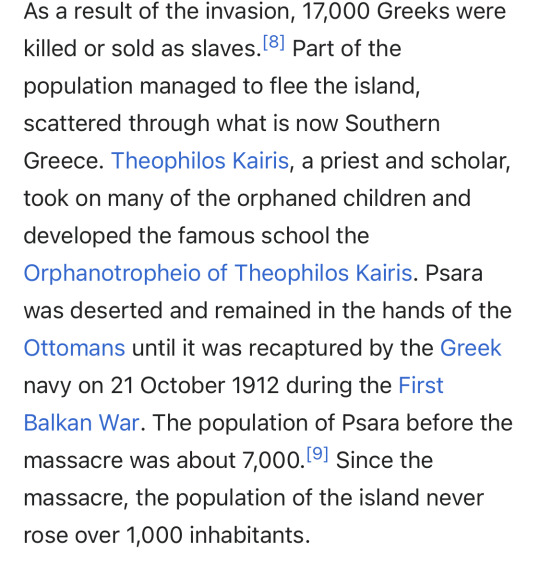
Or the massacre of Chios:
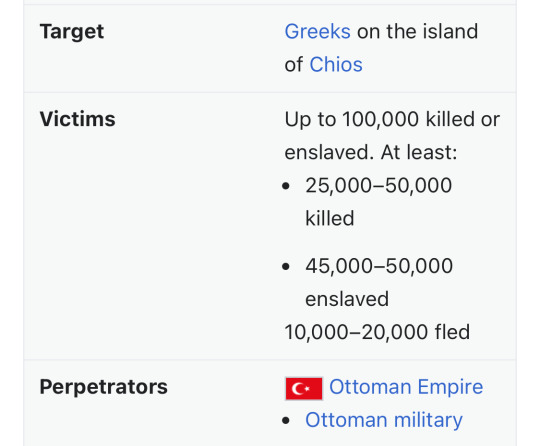
Or the treatment of Greek Cypriots:

Ever heard a Turk analyse these (and many more) and view them through an introspective critical light? Nope. Maybe there are but I haven’t seen any yet. The best most understanding thing I have heard is “the past is in the past”. And well this is 200 years stuff. What about 100 years stuff??? Like you said, Turkey officially denies the Greek, the Armenian and the Assyrian genocides, plus all the progroms against the Greeks which were happening till the freaking 50s.

*The Armenian genocide counts 1.5-2 million victims.
Should they justify themselves for how the Greeks - indigenous of Asia Minor and having majorities in the coasts even a hundred years ago - have ended up being 3,000 in all this massive country? They do. They give a range of answers from “no, Greeks weren’t indigenous here” to the fantastic “they deserved it”, I don’t know which one is better. For Constantinople alone:
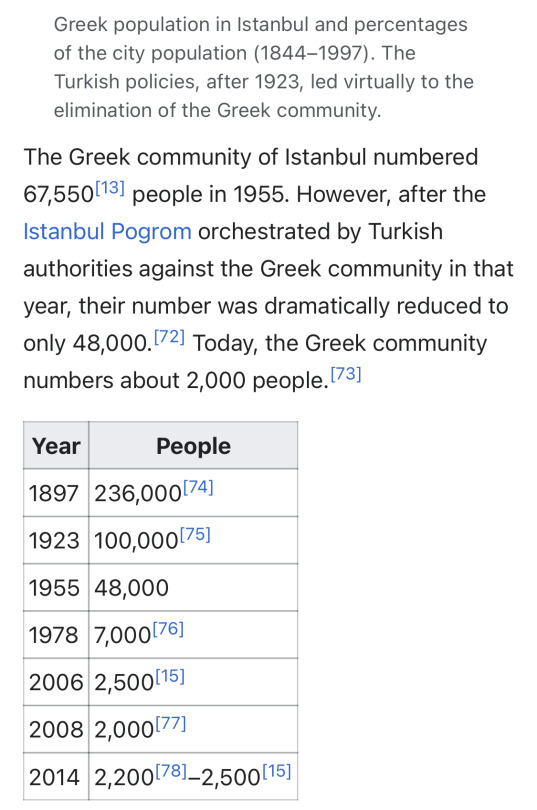
My dear Anon, Greeks HAD to revolt against the Ottoman Empire. We do not know how history would unfold if the Greek revolution didn’t happen, the Ottoman Empire would most likely fall again, but since the Greek independence weakened it earlier than it otherwise would, and if the revolution hadn’t happened, a lot more Greeks would have ended up assimilated before the fall. And I believe we would be so very different. We all know that we all still face issues due to the feudal and corrupted system of the empire that has infiltrated Greek politics still. Imagine if all that stuff was a few decades fresh. No European Union. And of course no Northern Greece. Things would be sooo different at our expense, if things didn’t happen in the way they did back then. I am frankly weirded out by a few Greeks - usually young and of certain political views which have turned into their entire identity - (not talking about you and not at all against the political views, I am only criticising the lack of moderation) who are really trying to deconstruct and renounce the Greek revolution, with arguments such as that;
a) Greeks fought because they thought they would live better and be richer if they were independent, so they also did it for themselves and for the spoils and not just for the nation (yes and? You just described all humans on the planet who think that they can prosper better in their own sovereign state, so what exactly is your problem with that?????)
b) Greeks had a great time in the Ottoman Empire because the Rum Millet was governed by the Greek Patriarch and they were allowed to be Christian (yes which is why they attempted 100+ revolts to which Turks always retaliated with thousands of killings. Fun times indeed. It was also so great to have no education and sense of your heritage unless you were a rich merchant in Constantinople or became a tax collector taking taxes from Christians and giving them to Turks or converted to Islam and spoke Turkish and got a a Turkish name so ESSENTIALLY DEGREEKED YOURSELF, the very definition of freedom, quite right.)
Those types of Greeks, they frankly baffle me. History itself shows that Greeks overall wanted out of the empire. In fact, most if not all subject nations in the Balkans and the Arabic ones in Middle East and North Africa at several points revolted against the Ottoman Empire. Subjects wanted OUT of it. Even Muslims wanted out of it. Could they all be unfair to the nice empire? Just because a few ones had managed to prosper through diplomatic relations with the Ottoman officers or just because some didn’t want to partake in the wars because they obviously dreaded their failure and what it would cause to them (all very human, normal concerns) it doesn’t mean they had a great time in the empire. I am so weirded out by such arguments when they don’t come from Turks. And of course, if you have to change name, religion and language in order to prosper, then immediately the argument of freedom and equality falls apart on its own!!! “Greeks were privileged in the empire because they could prosper if they converted to Islam and spoke the Turkish language” So, Greeks were privileged if they stopped being Greeks. Nice. Are those people proof-reading the things they write? I wonder. Next thing, they will start apologizing for gaining independence.
In the end, the Greeks of the 19th century were products of the Ottoman society they lived in. They rebelled violently against an - ultimately - violent state. It would be hard to be accustomed to drinking tea in pretty china and killing enemies only with the sharpness of your words as a subject in the Ottoman Empire. That revolt was harsh indeed - and it was frankly what was needed to succeed. Unfortunate but true. Nobody - certainly not the Greeks - ever takes up arms cheerfully. We grieve for our wrongdoings in Tripolitsá, well at least I do, but heck no I don’t feel bad for the War of Independence, I feel proud of it and I feel like I ought to acknowledge the sacrifice of people, who were hardened humans far from perfect, few of whom could also have their own motives, but did have a hope for their descendants to be who they are now with their opinions on the Internet in their sovereign state in their geographically and historically indigenous lands. I found this insistence of certain young Greeks to strip those Greeks as a whole - from the biggest warriors to the unknown soldiers - from all sorts of noble ideals offensive and disgraceful. The Society of Friends were indeed inspired by their ideals. Even foreign Philhellenes were inspired by ideals enough to come here and fight! So why are these Greeks now dying to argue that all Greeks were ready to die along with their families for the chance of some spoils?! It doesn’t even make much sense! Some would be corrupt or desperate enough for that, and some would not. People are people and there are all sorts of them. It comes down to the fact though that the Greek revolution succeeded because people believed it was the right time, and the right mentality had been formed, and it spread from the three initial members of the Society of Friends (Xanthos, Tsakalof and Skoufas) to a great part of Europe. It was never a little thing and it was not an era fallen from grace. It was an important era with its undoubtedly bleak moments. As it happens with all important eras that change history, including the other two revolutions of the romantic period; the American and the French.
Meanwhile, the Turks happily celebrate annually the Sack of Constantinople inside Hagia Sophia. They have the sack as an annual anniversary. The SACKING. The Fall of Constantinople. Like, the CONQUEST. You understand? The invasion. Seizing the foreign city and celebrating this 600 years later inside the biggest landmark of the defeated inhabitants. Have you ever seen another nation celebrating such a thing in 2023?! Not a liberation, not an independence, A CONQUEST. 600 YEARS LATER. Beating up the corpse! STILL!
So, I personally am not confused at all. My heart aches for all those non-Christian women and children and peaceful civilians who were lost, maybe gruesomely, certainly unfairly. But it also aches for so many Christians who had the exact same fate without ever being the attacker first. Confused overall about the Greek revolution? Heck no! For all the evil Greeks have ever done, Turks have managed to outdo them in retaliation or in advance every time somehow. This is a feat in its own right, I guess. I can not be guilt trapped by anyone who speaks only of Greek war crimes in relation to their affairs with the Turks. I am laughing. Think about it, and perhaps you will start laughing too.
#history#Greek history#modern Greek history#Greek revolution#Greek war of independence#anon#ask#Greco-Turkish relations#long post#long text#tw long#tw long post
25 notes
·
View notes
Text
Imagine getting paid to write an “analysis” like this. Imagine having the historical knowledge of a newborn child.

#vietnam war korean war greek civil war sino-soviet split algerian war iran-iraq war afghanistan war yugoslav wars congo wars#bangladesh independence war invasion of iraq cuban revolution iranian revolution syrian war lebanese war war on drugs ethiopian civil war#nothing happened between august of 45 and february of 22#history is over after all
3 notes
·
View notes
Text
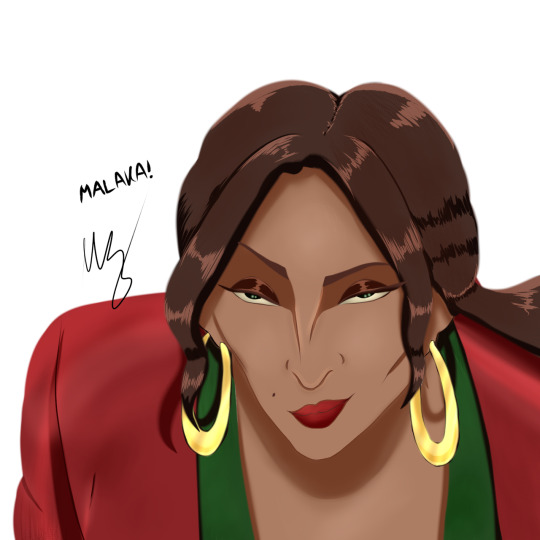
Laskarina Bouboulina from Zafara (2012).
3 notes
·
View notes
Text

Silver one-phoenix coin, minted in Aegina by Count Ioannis Kapodistrias. Dated 1828. Obverse: phoenix rising from the ashes below a cross, symbol of the newly reborn Orthodox Christian Greek state, inscription 'ΕΛΛΗΝΙΚΗ ΠΟΛΙΤΕΙΑ' ('Hellenic State'). The letters αωκα represent 1821, the date of the Greek Declaration of Independence, in the Ancient Greek numeral system. The small anchor was the Aegina mint mark. Reverse: denomination '1 ΦΟΙΝΙΞ' ( '1 phoenix') inscription: 'ΚΥΒΕΡΝΗΤΗΣ Ι.Α. ΚΑΠΟΔΙΣΤΡΙΑΣ' ('Governor I.A. Kapodistrias')
The phoenix (Greek: φοίνιξ, foinix) was the first currency of the modern Greek state. It was introduced in 1828 by Governor Count Ioannis Kapodistrias and was subdivided into 100 lepta. The name was that of the mythical phoenix bird and was meant to symbolize the rebirth of Greece during the still ongoing Greek War of Independence. The phoenix replaced the Ottoman kuruş (called grosi γρόσι, plural γρόσια grosia by the Greeks) at a rate of 6 phoenixes = 1 kuruş.
Source: https://en.wikipedia.org/wiki/Phoenix_(currency)
2 notes
·
View notes
Text
1821 The Founding of Modern Greece by Athina Cacouri
I think there’s a view that Greece has been an independent country since the time of ancient Athens, Sparta, and Thebes two thousand five hundred years ago.
This is most certainly not the case as this book amply illustrates.
The books starts with a chapter on how Hellenism (the national character and culture of Greece) survived under the rule of the Ottoman Empire for hundreds of years. Various…

View On WordPress
0 notes
Text
Lord Byron's first edition copy of Frankenstein (1818), one of only two known surviving copies to be personally inscribed by Mary Shelley (the other is to her friend Mrs. Thomas). Byron took this copy with him when he went into the Greek War of Independence, and it was among his personal things when he died there in 1824:

Mary didn't disclose her name in the inscription because the novel was published anonymously and she initially wanted to keep it that way. However, Byron did reveal her identity in a letter to his publisher, correcting his assumption that Percy was the one who wrote the novel:
"The story of the agreement to write the Ghost-books is true — but the ladies are not Sisters — one is Godwin’s daughter by Mary Wolstonecraft — and the other the present Mrs. Godwin’s daughter by a former husband. Mary Godwin (now Mrs. Shelley) wrote 'Frankenstein' — which you have reviewed thinking it Shelley’s — methinks it is a wonderful work for a Girl of nineteen — not nineteen indeed — at that time."
Under Mary Shelley's consultation, Thomas Moore writes in his Life of Lord Byron (vol III):
"During a week of rain at this time, having amused themselves with reading German ghost-stories, they agreed, at last, to write something in imitation of them. 'You and I,' said Lord Byron to Mrs. Shelley, 'will publish ours together.'"
Percy, writing as Mary with her permission, mentions Byron and himself (in the third-person) in the novel's 1818 preface thus:
"Two other friends (a tale from the pen of one of whom would be far more acceptable to the public than any thing I can ever hope to produce) and myself agreed to write each a story, founded on some supernatural occurrence.
The weather, however, suddenly became serene; and my two friends left me on a journey among the Alps, and lost, in the magnificent scenes which they present, all memory of their ghostly visions. The following tale is the only one which has been completed."
#mary shelley#frankenstein#percy shelley#percy bysshe shelley#lord byron#byron#shelley#the shelleys#literature#english literature#romanticism#novels#books#authors#writers#19th century#gothic literature#gothic#the geneva squad#lake geneva 1816#geneva squad#dreams of 1816
587 notes
·
View notes